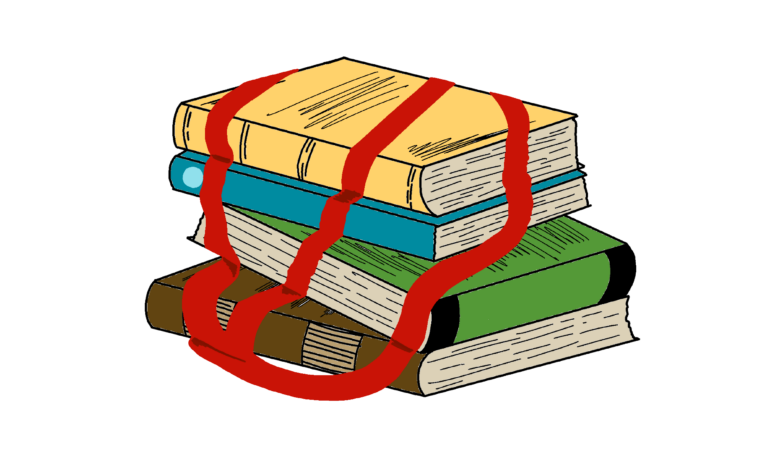
Why the book ban promotes censorship in New Jersey
By Grace Bertrand
Censorship has crept into spaces from classrooms to libraries, belittling marginalized voices and under-represented identities. The privilege to pick up a book on any topic is a liberty that has been stripped from students all over the United States. Banning books in the U.S. can be traced back as early as 1637, but in just this past year, New Jersey specifically has seen 13 attempts at restricting access to 28 books ranging from topics on race, gender, sexuality and religion from school curricula and public libraries.
PEN America, a nonprofit organization committed to raising awareness for the protection of free expression in the U.S., released an “Index of School Book Bans” for just the first half of the 2022-2023 school year, where they found that 30% of the unique titles banned are books about race or racism, or “feature characters of color,” while 26% of the 1,500 unique titles banned cover LGBTQIA+ characters or themes.
The undermining of the stories waiting to be told by disempowered parties has not only been an issue in classrooms, but in libraries as well. As promoters of knowledge, librarians have a duty to protect the freedom to read for all. The American Library Association released a “Freedom to Read Statement” that affirms “libraries should provide materials and information presenting all points of view on current and historical issues. Libraries should challenge censorship in the fulfillment of their responsibility to provide information and enlightenment.”
What can we do in this clash of censorship? While Rider itself has no issues, our librarians are involved in several state organizations that combat book banning in New Jersey public and school libraries, including the New Jersey Chapter of the Association of College and Research Libraries.
On the legislative side, a bill was introduced last month to create a law against book banning in New Jersey called The Freedom to Read, sponsored by Senator Andrew Zwicker, Senator Teresa Ruiz and Assemblywoman Mitchelle Drulis. Librarians across the state are calling for valuable voices from New Jersey students to submit written testimonies on the matter, simply by emailing pastpresident@njasl.org. A state hearing in front of members of the Education Committee will be held on Feb. 15.
Rider education professor Heather Casey said, “Universities are places where free and open access to information and ideas is key to learning. When access is removed to different perspectives and points of view, it limits learning.”
The banning of books is an issue unfolding in real time that not only has immediate impact, but also future consequences on how children are taught and what information is disclosed to them in their most impressionable years.
In attempts to shelter the younger generations from being easily shaped by the information out in the world, state-level policies end up denying them the ability to think for themselves and draw conclusions based on the whole truth.



